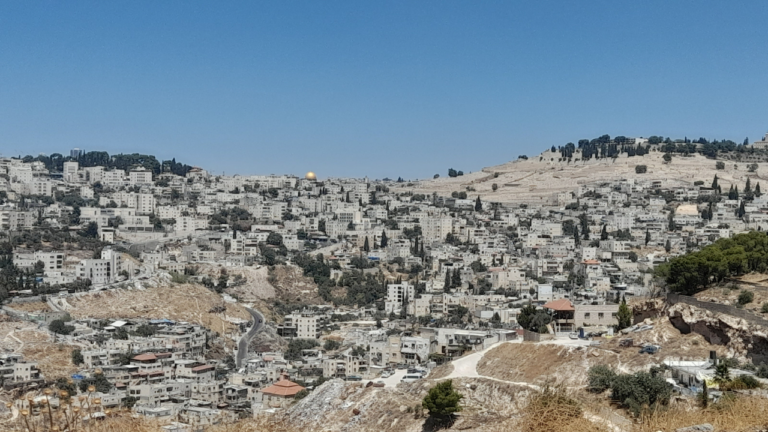Leadership: Jerusalem Style
When Moshe asks God to appoint his sucessor he describes the ideal Jewish leader: “Let the Lord, the God of spirits of all flesh, appoint a man over the congregation, who will go forth before them and come before them, who will lead them out and bring them in.” Rashi interprets the phrase “go forth before them” to refer to displaying leadership through personal example in times of war. The leader must lead his people in battle and not stay at home.
The Sefer Ma’ayanah shel Torah offers an additional interpretation. Some leaders are always looking at the people to see what is popular and then only formulate a plan or implement a policy after knowing that the people will accept it. This, however, is not the Torah’s approach. The leader must take personal responsibility and “go forth before them,” leading based on what God wants as opposed to what is popular. Through his piety, charisma and leadership skills the leader must make sure that the people will eventually follow, but there is no guarantee that his decisions will initially align with the people’s will.
Rav Yisrael Salanter suggests that leadership without a backbone will characterize the time period before Mashiach. The Mishna says that in that time “the face of the generation will be like the face of a dog.” Rav Salanter noted that while a dog runs before its master, he is always looking back to check if his master is happy with him or not. Similarly, the deficient leaders in the time before Mashi’ach will always be looking over their shoulder to make sure that they do what is popular and not what is right.
It is for the reason that the Torah wants the political and judicial leadership of the Jewish people to be situated in Yerushalayim.
Only by having fear of heaven (yirat shamayim) can a leader be loyal to his principles and not bend based on public pressure. The recognition of the supremacy of a higher power frees a leader from just following the whim of the people. This sense of awe of God is interwoven into the fabric of Yerushalayim, as the city’s very name includes the word “yirah” or fear. Yerushalayim’s overpowering presence of God will keep the leader on track.
Perhaps it is for this reason that when Dovid accompanied the Aron to Yerushalayim, he began to dance and jump with utter disregard for looking lowly or foolish. When his wife Michal challenges him that he degraded the position of king, Dovid’s effectively responded that he was dancing for an audience of One – God. When Dovid entered Yerushalayim the presence of the Shechina caused him to abandon any vestige of thinking about “what would the people think” and instead focused solely on God.
May we merit to see with the clarity of Yerushalayim.



